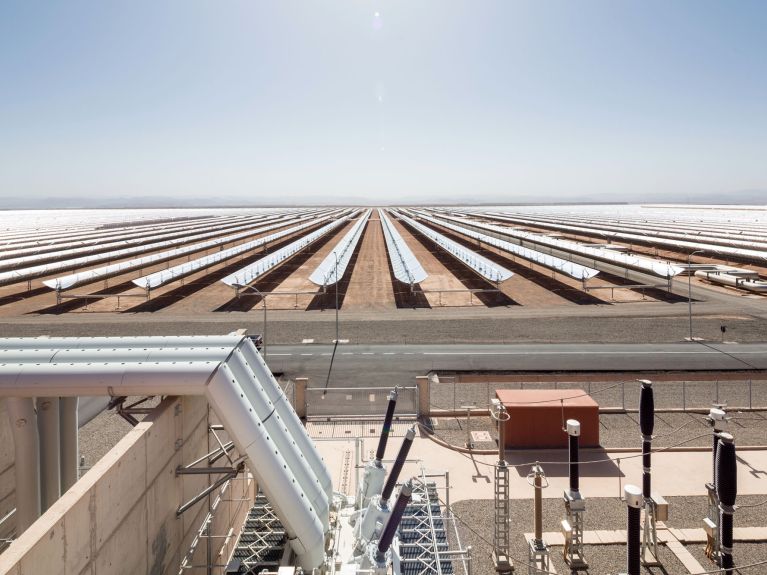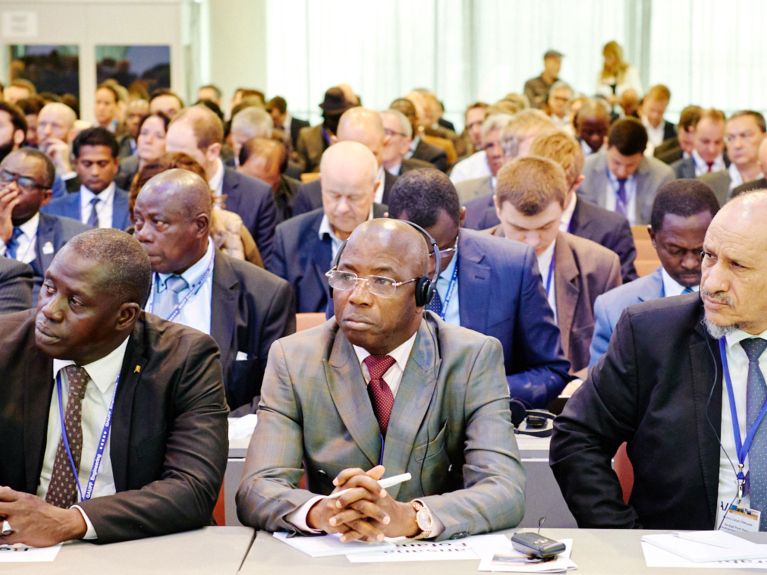“Leapfrogging” in Africa?
Can Africa develop on the basis of renewable energies? The German-African Energy Forum has taken up this question. Peggy Schulz of the Africa Association knows more about the matter.

Mrs Schulz, you are organizing the German-African Energy Forum for the German-African Business Association in Hamburg at the end of March. It has developed into one of the largest European platforms for energy issues relating to Africa and is taking place for the fourteenth time. What has been achieved so far?
In the past 13 years, more than 4,600 participants have visited the Forum. We welcomed African delegations from 53 and ministerial delegations from 29 countries. Important contacts were made at the conferences, projects were created and followed up. In addition, as part of the Forum, we have campaigned for the German government to provide even more support for German energy companies in Africa, and will continue to do so.

One programme item is “German-African flagship projects as a stepping stone towards Africa’s Green Deal”. What are these flagship projects?
The German-African projects cover the whole range of solutions, from the world's largest concentrated solar power (CSP) system in Morocco, to customized offers for rural areas or for individual industrial companies such as in Zambia. In addition, German companies offer everything from project development and consulting to technology, and link solutions in the energy sector with other sectors such as agriculture.
Cape Verde wants a one-hundred per cent energy supply through renewable energies by 2025
What African countries offer the best conditions for green technologies?
It depends on the technology. While there is great potential for solar energy in almost all these countries, coastal countries in particular are suitable for exploiting wind energy. Hydropower is the most frequently used renewable energy source in Africa. Here too, however, with a current installed capacity of 36 GW, only eleven per cent of the potential has been exploited. Major projects in this area have been planned in Ethiopia and Angola in recent years and have already been implemented. Framework conditions also play an important role. Some countries, such as Cape Verde, have set themselves ambitious goals: this island nation wants to ensure one hundred percent of its energy supply through renewable energies by 2025, and has created appropriate mechanisms and incentive systems to that end.

What does the German side have to offer?
German companies are broadly positioned in renewable energy technologies. Energy transition technology Made in Germany has a good reputation and is in high demand abroad. Many German suppliers therefore bank on exports. In the wind energy sector, the export quota of manufacturers is 67 per cent, and the importance of exports has also increased for solar systems, since companies in Germany are exposed to rapidly changing framework conditions. Hydropower technology has been used the most in the past and will continue to grow in the future. But it’s also the price declines for solar and wind energy that have led to increasing interest in these technologies.
Would it be possible even to “leapfrog”? In other words, to develop the African economy and industry from the start on the basis of renewable energies?
This idea is often discussed in theory, since most African countries have enormous potential for the use of renewable energies and the costs of wind and solar energy have decreased significantly in recent years. In addition, network expansion in many rural regions of Africa isn’t economical and is relying more and more on decentralized solutions. Renewable energy systems such as solar home systems or decentralized PV mini grids are more suitable as suppliers. On the other hand, there are African countries that want to solve the problem of insufficient electricity supply by using their own fossil resources such as natural gas or coal. The Forum will discuss exactly this topic to see how realistic an industrialisation of the continent is on the basis of a one-hundred per cent renewable energy supply, and to what extent this is supported by the strategies of African governments.
What are the most common obstacles? Why do projects still fail?
Most of the time, as in other sectors, joint projects continue to fail due to funding difficulties. For example, while providers from China have their own funding through state support, there are no such offers for German companies. There’s still a lot to be done when it comes to safeguarding projects. We need to introduce a new kind of insurance, a “Green Hermes”, which would facilitate the financing of projects in the field of renewable energies and protect investors from Germany against payment defaults by African electricity consumers. With this protection, banks would be more willing to grant loans for such projects.
14th German-African Energy Forum, 25-26 March 2020 in Hamburg


